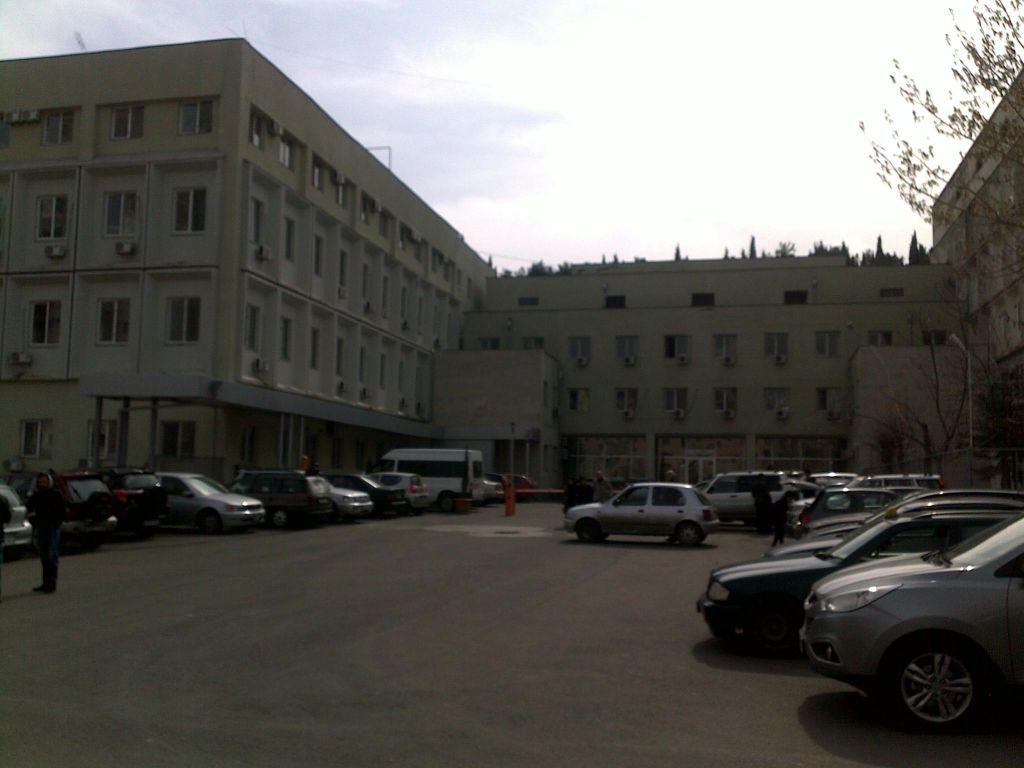Paata is a former patient of the National Center for Psychic Health and Drug-Addiction Prevention. After a successful completion of the intensive therapy he now assists other beneficiaries of the Center. Paata said he knows better than the government about what people with mental disorders need and what problems they face in life. He is involved in several projects now. “10 years have passed since I was diagnosed with mental disorder. After intensive therapy courses and treatment, I returned to ordinary life. I started working. I was member of the advocacy group and protected rights of patients. As a result, I successfully realized myself and managed to help others too.”
Olga is also a former patient. She thinks people with mental disorders need rehabilitation alongside the medical treatment for full recovery. “Only psychotropic medicines are not enough for full recovery. People need rehabilitation too. Self-assistance groups must be established, in which those people will be employed. Without rehabilitation and employment, people with psychological problems will remain in mental hospitals or in families completely isolated from the society.”
Several beneficiaries of the Center attended communication skill-building trainings. They learned how to start communicating with people. Beneficiaries said the trainings were the best way for rehabilitation; the psycho-therapy course helps them to recover. Several years ago, patients created 10-member football team; the team still actively trains and successfully participates in tournaments.
According to official information, only 1% of the funds allocated for mental health care are spent on the rehabilitation programs. Beneficiaries of the Center believe the allocated funds are not enough for their social integration. There is only one psycho-social rehabilitation center in Tbilisi, where estimated 1, 5 million people live. The center can serve only two patients per day. The situation is much worse in the regions. In Kvemo Kartli for instance there is no rehabilitation institution at all.
“It is good that medical personnel are being trained, and they know better now their duties and responsibilities: they protect patients´ rights better today. When patients get medicines, people are skeptical about them, even though nobody speaks about it directly. We permanently try to destroy these stereotypes and to integrate them into society,” Paata said.
Olga said she has many interesting ideas, but cannot realize them because of lack of support. “ A mental disorder means that a person has some characteristic features. They might be less visible, but I am asocial person. Because of my complexes, I feel better about using in internet than in real society. For people like me, it is urgently important to be part of sport groups, or different activities. Arrangement of special workshops will also be fine, where beneficiaries will do different things. They must live and work in an environment where they will be accepted with their characteristic features.”The monitoring group arrived the National Center for Mental Health and Drug-addiction Prevention to study the situation of people with chronic and acute mental disorders/illness, for the first time last year. Chief consultant of the group Shota Gamkrelidze said the problems of the field are caused by different factors. “Several years ago, 1200-bed facility for mental health care was functioning only in Tbilisi. Nowadays, the number of beds is 350. The medicines are very expensive. Besides that there are new rules: in accordance to the Ministry of Healthcare, a patient with an acute form must be dismissed within two weeks or must be placed in the unit for patients with chronical problems. The history of psychiatry does not remember any cases when a patient recovered within two weeks. Maximum term for the placement of patients in the long-term unit is about 40 days.”
Head of the psycho-social rehabilitation department at the National Center for Metnal Health and Drug-Addiction prevention, Lali Tsuleiskiri, also spoke about shortcomings in the treatment process.
“Doctors have to dismiss patients for 10-14 days, or maximum 1 month and then the patients can return. B. The mental hospital must be located in Tbilisi. There, patients voluntarily stay in the hospital and they feel more protected. There are patients which are cured by foreign colleagues, and in fact they must not be placed in the center. It is impossible to let the patient go alone – she/he will sit somewhere in the street and get frozen in the winter. Most of our beneficiaries cannot take care of themselves at all.”
The Psycho-social rehabilitation unit has been running in the Center since 2013. In the frame of the program, psychologists and social workers provide social and art therapy courses to patients with mental disorders. Besides that they help patients to get IDs or other documents; and to teach them how to spend money in a responsible way. Special trainings were conducted for two patients, which could not get IDs and spend money in a responsible way. L.G. W which was born in Russia and was first registered in the hospital in 1992, also received legal consultation; now he has applied for a Georgian citizenship to get pension. The Public Defender Report from 2013 pays particular attention to the problems of people with mental disorders. It´s written in the report that: “We issued very detailed recommendations which must be necessarily implemented to achieve some progress in the field. The main problem is meager state funding of the field. I think the state policy of Georgia is the main issue. If the policy is oriented on improvement of the situation, it will be very possible to take measures in this direction” the report says.
Giorgi Janelidze

Problems regarding mental health in Georgia
Most of the people with mental disorders are isolated from the society. For complete recovery they need psycho-social rehabilitation and integration in the society; nevertheless the state does not do anything in this direction. According to official information, only 1% of the funds allocated for mental health care are spent on the rehabilitation programs. Beneficiaries of the Center believe the allocated funds are not enough for their social integration.




